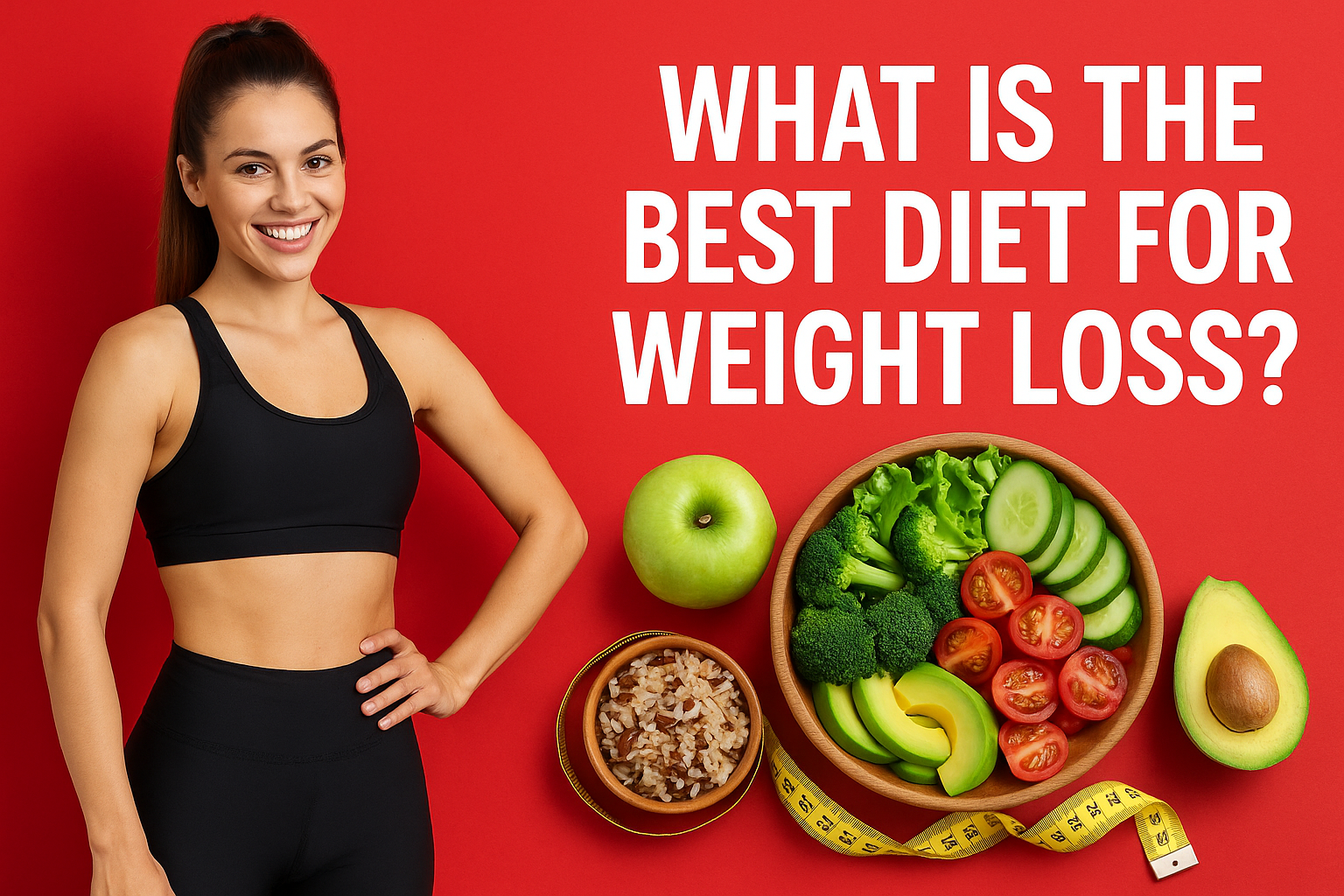When it comes to shedding extra pounds, one question reigns supreme: What is the best diet for weight loss? With a flood of options like keto, intermittent fasting, paleo, and plant-based plans, it’s easy to feel overwhelmed. The truth is, there is no one-size-fits-all solution. However, science points to several key principles that define the most effective and sustainable diets.
In this article, we’ll explore the best diets for weight loss, what the research says, and how to choose the right one for your lifestyle.
What Makes a Diet Effective for Weight Loss?
Before jumping into specific diet types, it’s essential to understand what actually makes a diet work:
Calorie Deficit: Weight loss occurs when you consume fewer calories than your body burns.
Nutrient Density: A successful diet should provide essential nutrients without excessive calories.
Sustainability: The best diet is one you can stick to in the long term.
Satiety: Feeling full helps you eat less and avoid cravings.
Top Diets for Weight Loss (Backed by Science)
1. Mediterranean Diet
Ranked consistently as one of the healthiest diets, the Mediterranean diet emphasizes:
Whole grains
Fresh vegetables and fruits
Healthy fats (especially olive oil)
Lean proteins (like fish and legumes)
Why it works: It’s rich in fiber, healthy fats, and protein, which enhance satiety. Studies show it aids weight loss and reduces the risk of heart disease and type 2 diabetes.
Study Highlight: A 2019 meta-analysis in Nutrients found that the Mediterranean diet significantly reduced body weight and waist circumference.
2. Low-Carb and Ketogenic Diets
Low-carb diets (like Atkins and keto) restrict carbohydrates to promote fat-burning. Keto, in particular, pushes the body into ketosis, using fat for fuel.
Why it works: Reducing carbs helps decrease insulin levels, which can lead to rapid fat loss, especially abdominal fat.
Study Highlight: A 2020 review in Nutrition & Metabolism reported that ketogenic diets resulted in greater weight loss than low-fat diets over 12 months.
Caution: Keto can be difficult to sustain and may cause side effects like fatigue or nutrient deficiencies if not well-balanced.
3. Intermittent Fasting (IF)
Rather than focusing on what to eat, IF emphasizes when you eat. Popular formats include:
16:8 method (16-hour fast, 8-hour eating window)
5:2 method (eat normally 5 days, reduce calories for 2 days)
Why it works: By reducing the eating window, calorie intake tends to decrease naturally. It also improves insulin sensitivity and metabolism.
Study Highlight: A 2022 study in Obesity Reviews concluded that IF can lead to similar or greater weight loss compared to continuous calorie restriction.
4. Plant-Based Diets
Vegetarian and vegan diets focus on whole plant foods while avoiding or minimizing animal products.
Why it works: High in fiber and low in calories, plant-based diets promote fullness and reduce calorie intake.
Study Highlight: Research published in Journal of Geriatric Cardiology found that plant-based diets are associated with lower body mass index (BMI) and better weight control.
5. DASH Diet (Dietary Approaches to Stop Hypertension)
Originally designed to reduce high blood pressure, the DASH diet is now known for weight loss benefits too.
Why it works: It encourages whole foods, low sodium, and reduced processed food intake—leading to better calorie control and improved metabolic health.
Factors to Consider When Choosing the Best Diet
When deciding on the best diet for you, consider:
Your health conditions: Some diets are better for managing diabetes, high blood pressure, or heart disease.
Your lifestyle: A diet that fits your daily schedule and preferences is easier to maintain.
Your cultural or personal values: Food is personal; your diet should reflect your beliefs and traditions.
Professional support: Consult a dietitian or healthcare provider before starting any new diet.
Final Verdict: What’s the Best Diet for Weight Loss?
The best diet for weight loss is the one that:
Creates a calorie deficit
Supports your health and energy
Is rich in whole, unprocessed foods
You can follow consistently
For many people, the Mediterranean diet, intermittent fasting, or low-carb diets strike the right balance of effectiveness and sustainability. But ultimately, it’s not just about losing weight—it’s about building a healthier lifestyle that you can maintain long-term.
FAQs
Q: Can I lose weight without exercise?
A: Yes, diet plays a bigger role in weight loss, but exercise helps maintain muscle and improve metabolic health.
Q: How fast should I lose weight?
A: Aim for 1–2 pounds per week. Rapid weight loss can lead to muscle loss and is hard to sustain.
Q: Should I count calories?
A: Calorie awareness helps, but focusing on food quality and portion control is often more sustainable.

